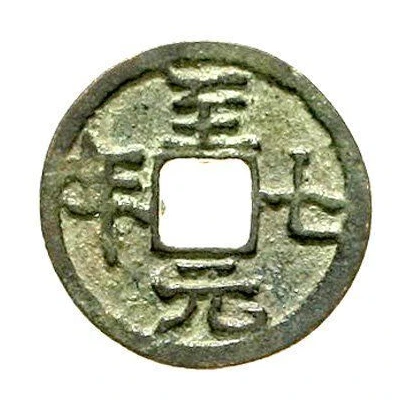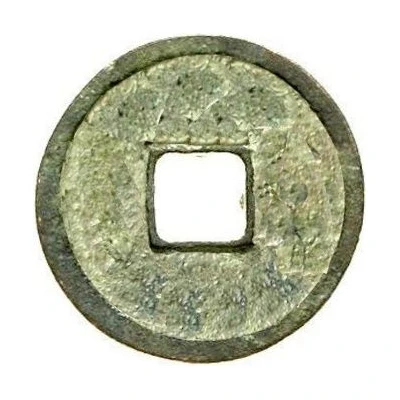Fractional cash - Zhiyuan Wu Yin; Zhi Yuan; temple coin
15 (1338) year| Bronze | - | 17 mm |
| Issuer | Empire of China |
|---|---|
| Emperor | Yuan dynasty › Ukhaghatu Khan "Huizong" (元惠宗) (1333-1368) |
| Type | Token |
| Year | 15 (1338) |
| Calendar | Chinese cyclical (cycle starting in 1324) |
| Value | Fractional cash (½) |
| Currency | Cash (621-1912) |
| Composition | Bronze |
| Diameter | 17 mm |
| Shape | Round with a square hole |
| Technique | Cast |
| Orientation | Medal alignment ↑↑ |
| Demonetized | Yes |
| Updated | 2024-10-03 |
| Numista | N#221877 |
|---|---|
| Rarity index | 100% |
Reverse
One Chinese ideogram above and one below.
Lettering:
香
殷
Translation:
Xiang Yin
Incense in Abundance
Edge
Plain
Comment
These coins have dates written in the cyclical calendar, which repeats on a 60-year cylce. This partical cycle started in 1324.During the Yuan dynasty, there was a preference for paper money and silver ingots, making actual coins scarce or rare. However, the Yuan dynasty emperors supported Buddhism, and allowed temples to cast their own statues and artifacts. These temple coins were originally cast as offerings to Buddha, but due to their metal content, they still had an intrinsic value. While they were not official issues, these were widely accepted and used as small change in the markets.
With these not being official issues, there are different diameters and weights possible. The average weights seem to be around 1/2 Cash, but smaller and larger weights exist.
Interesting fact
One interesting fact about the Token Fractional cash - Zhiyuan (Wu Yin; Zhi Yuan; temple coin) 15 (1338) from Empire of China made of Bronze is that it was used as a form of currency during the Yuan Dynasty, which was established by Kublai Khan, the grandson of Genghis Khan. This coin was used alongside other forms of currency, such as paper money and silver, and was used to facilitate trade and commerce within the empire.

